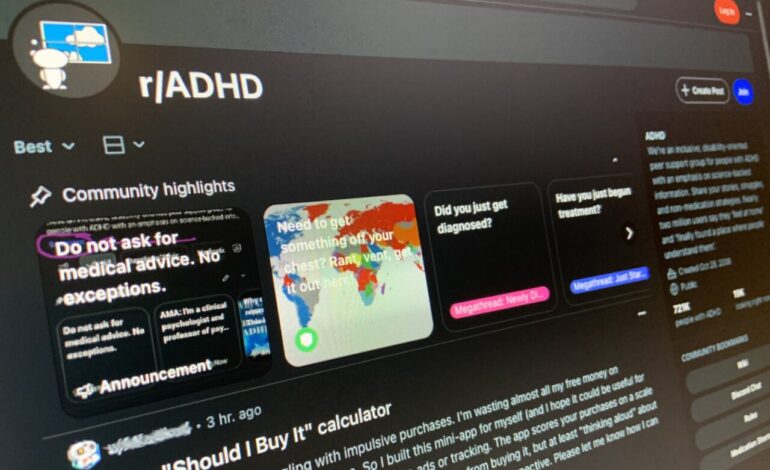New Study Reveals Differences in Self-Diagnosed ADHD Perspectives

Recent research from Michigan State University highlights significant differences in the experiences of individuals who self-diagnose attention-deficit/hyperactivity disorder (ADHD) compared to those diagnosed by healthcare professionals. The study, published on October 25, 2023, analyzes vast amounts of data from a popular Reddit forum dedicated to ADHD, revealing how self-perception is influenced by the nature of diagnosis.
The researchers examined over 450,000 posts made within the subreddit r/ADHD over a period of 14 years, narrowing their focus to a subset of 211,000 posts authored by 15,432 unique users who indicated their diagnosis status. The analysis aimed to discern patterns in language that might reflect self-image, validation-seeking behaviors, and internalized stigma regarding ADHD.
Among the findings, individuals who self-diagnosed displayed a more pronounced negative self-image compared to those with clinical diagnoses. They often sought validation from online communities and personal relationships, indicating a deeper need for affirmation about their experiences. For instance, one user described their situation as “undiagnosed but suspecting things,” highlighting a common sentiment among self-diagnosed individuals.
The results demonstrated that self-diagnosed individuals expressed greater internalized stigma, with phrases such as “I avoided treatment for years because of the shame of the source” underscoring their struggles. In contrast, clinically diagnosed individuals were less likely to seek out validation, yet the correlation between validation and self-image was notably stronger within this group.
Understanding Self-Verification Theory
The findings align with the psychological concept known as self-verification theory. This theory posits that individuals prefer their self-perceptions to be reflected by others, which can be particularly relevant for those self-diagnosing ADHD. The lack of formal recognition can drive individuals to look for confirmation within online spaces such as Reddit.
While validation from peers may enhance self-esteem in some respects, it can inadvertently reinforce negative self-perceptions and societal stereotypes associated with ADHD. This cycle contributes to a persistent sense of internalized shame and stigma, complicating the mental health landscape for those affected.
The researchers emphasized the critical role of online communities in shaping self-identity for individuals with ADHD. They advocate for responsible sharing of information within these platforms to promote healthier self-images. “Collaboration with mental health organizations is essential to ensure the dissemination of evidence-based content, which can strengthen social support networks and promote positive mental health outcomes for the ADHD community,” the authors stated in their paper.
The Challenge of Misinformation
Despite the positive potential of online communities, challenges remain. Other studies have indicated that misinformation about ADHD is prevalent across social media platforms. A study from March 2023 highlighted that nearly half of popular ADHD-related videos on TikTok contained misleading information. Viewers of such content were more likely to overestimate the prevalence of ADHD, which affects approximately 6% of adults and 11% of children in the United States.
The ongoing debate among experts also underscores the complexities surrounding ADHD diagnosis and awareness. As research continues, the need for accurate information and supportive communities remains paramount for enhancing understanding and reducing stigma associated with ADHD.
In summary, the research from Michigan State University sheds light on the emotional landscape of individuals with self-diagnosed ADHD. It emphasizes the importance of fostering positive online environments that can help cultivate a supportive community while addressing the pervasive issue of misinformation.






